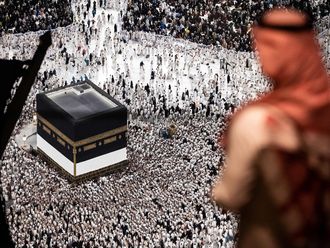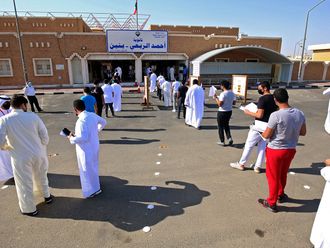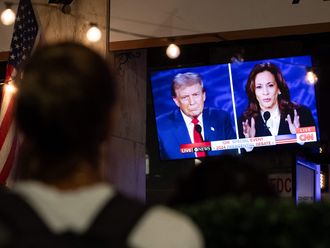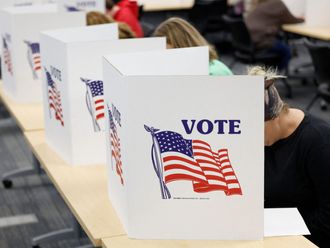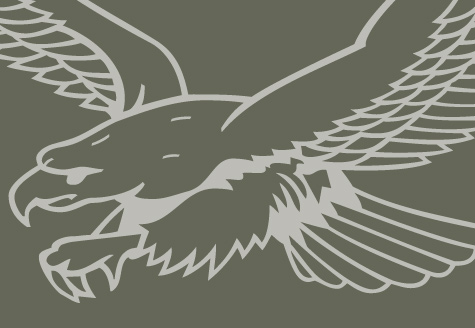
Manama: Iraq's first ambassador to Kuwait after a 20-year diplomatic hiatus has called for new strategic bilateral relations that would put the bitter past behind the two countries.
"Iraq looks forward to bright prospects of vital cooperation and fraternal activities as we seriously seek to establish the foundations for strategic relations, to look at the interests of both people through the prism of wisdom and to overcome all the crises of the terrible past," Ambassador Mohammad Hussain Bahr Al Uloom has said in a brief statement to the Emir Shaikh Sabah Al Ahmad Al Sabah as he presented his credentials last week.
The new envoy pledged to exert "the highest level of efforts to renew relations between the two peoples and nations."
"I will seek to improve and enhance our bilateral cooperation at all levels in order to achieve progress based on fraternal and historic ties and on the principles of law, international legitimacy and mutual respect," the ambassador said, quoted by Kuwait News Agency (Kuna).
The Iraqi post has been vacant since 1990 when Iraqi troops invaded the northern Arabian Gulf state and set off the 1991 Gulf War.
The Iraqi ambassador is the son of Shiite scholar and politician Mohammad Bahr Al Uloom and the brother of the former oil minister, Ebrahim Bahr Al Uloom.
Iraqi officials say that he is "in a long line of eminent individuals from an illustrious and well-known family who long struggled against the Baath party and the Saddam Hussain regime."
Mohammad Bahr Al Uloom, the ambassador's father, was killed in 2001 in Najaf at the age of 73.
Kuwait in July 2008 named its first ambassador to Iraq and this year, the Kuwaiti embassy celebrated Kuwait's National Day for the first time in 19 years in the Iraqi capital.
However, divergences over the billions of dollars that Iraq still owes Kuwait in compensation for the 1990 invasion have been a lingering cause of friction and bitter recriminations between two neighbours despite the passage of time and the death of Saddam, responsible for starting it.
In April, Adnan Abdul Samad, head of the Kuwaiti parliament's budget committee, said that Kuwait had so far received $17.5 billion out of the $41.8 billion approved by a United Nations special compensation fund.
However, in May, Hussain Al Shahristani, Iraq's oil minister, said that Iraq could not sustain its reparations payments to Kuwait.
"Iraq has paid Kuwait enormous amounts of compensation for its losses and we do not know of any country in the world that has paid such high sums," Shahristani said. "The sum of money that Germany paid to France and Britain is less than what Iraq has paid to Kuwait, even though that was a world war and the losses were considerable."
His statement however did not impress Kuwait's lawmakers who in September criticised the Kuwaiti Foreign Minister Shaikh Mohammad Al Sabah for saying that his country was considering a proposal by UN Secretary General Ban Ki-moon to recover the unpaid compensation by investing in joint ventures in Iraq.
Last month, the Iraqi government resorted to dissolving its national airline in an attempt to avoid the payment of reparations of $1.2 billion to Kuwait Airways for the theft of 10 planes and spare parts by Iraqi Airways during the pillage that followed the August 1990 invasion.
A central issue at the core of the rancourous relations is that Iraq has yet to make an official confirmation of its commitment to the UN resolution that demarcates the borders with Kuwait amid concerns in Kuwait that doubts about its sovereignty in Iraq were not confined to Saddam.


